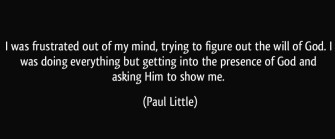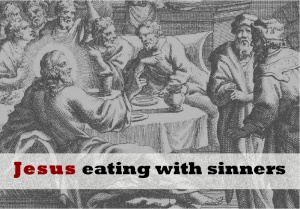I don’t believe in a God who would _____. I refuse to believe in a God who will _______. The God I believe in would never ______.
On an almost daily basis I hear or read sentences like these. And on the surface this type of language can sound like a beautiful sentiment. They are typically said in an effort to distance God from some type of position that we think offends people. In other words, “God isn’t like that.” But just for a moment, imagine talking this way about anybody else.
Well, some say Bill hates bacon, but I refuse to believe in a Bill that hates bacon. I mean, the Bill I believe in would never hate bacon.
We never talk like that. Except about God. It seems that we forget that God isn’t a thing, but a person.
Now, some of this comes from being unsure. We don’t always know where God stands on certain issues. The Bible can be confusing. The church does not speak with one voice. All that is true.
But.
How often does what God would never do just happen to match our moral leanings? Isn’t it amazing that God would so often see things philosophically and politically just like me? How fortunate that God seems to view the world much as I do!
Throughout time, people have consistently struggled with making God in our image. And we do so today.
- God is definitely a democrat because I am.
- God is definitely for this political agenda which, oh my, just happens to match my political agenda.
- God is obviously against this sin (yeah I think that’s a sin).
- God does not care if we do that (whew, good thing God agrees with me, some of the Bible had me worried.)
As we constantly scramble to make God fit the image we want, we are forced to ignore the claims of millions of others who follow God. We shuffle past parts of the Bible that don’t match our painting of the Lord. We somehow always end up reading about “God so loving the world” but quickly move past talk of narrow paths or parables of banquets where guests are kicked out. Or we do the exact opposite.
This isn’t a call for us to change our views or interpret scripture differently. It is simply a call to honesty. We should all admit that, perhaps, our image of God is faulty, incomplete and often self-centered. We might be wrong about some things about God. The “God I believe in” may not be an exact representation of the actual God of the universe.
And if we can be honest, then it makes us humble. And if there is one thing the world could use right now, it is Christian’s willing to admit they don’t know everything.
So if you feel the need to take a position on God, here are a few options:
If you don’t believe God exists, then fine. Don’t believe.
If you want to say “unless God does things a certain way, I refuse to follow God”, then fine. That is a perfectly legitimate angle. God is real, but I don’t like God so I refuse to take part.
Or claim to be a follower. Try to live as a disciple. And along the way admit that you can’t possibly discern every little thing about God. No one can.
Those will all work. But to claim that God should be followed, except when God seems to disagree with my preconceived notions, is goofy. We don’t get to decide what God is like. What God has to do. How God has to treat people. We are not God. Again, humility.
Over and over in the Bible, people are surprised by what God does. Their preconceived notions are consistently blown apart. Ours should be too. If they never are, then maybe we aren’t dealing with the real God but the god of our own creation.
Interestingly, we live in a time when so many claim that God accepts us just as we are. Maybe it is time to offer God the same courtesy.










